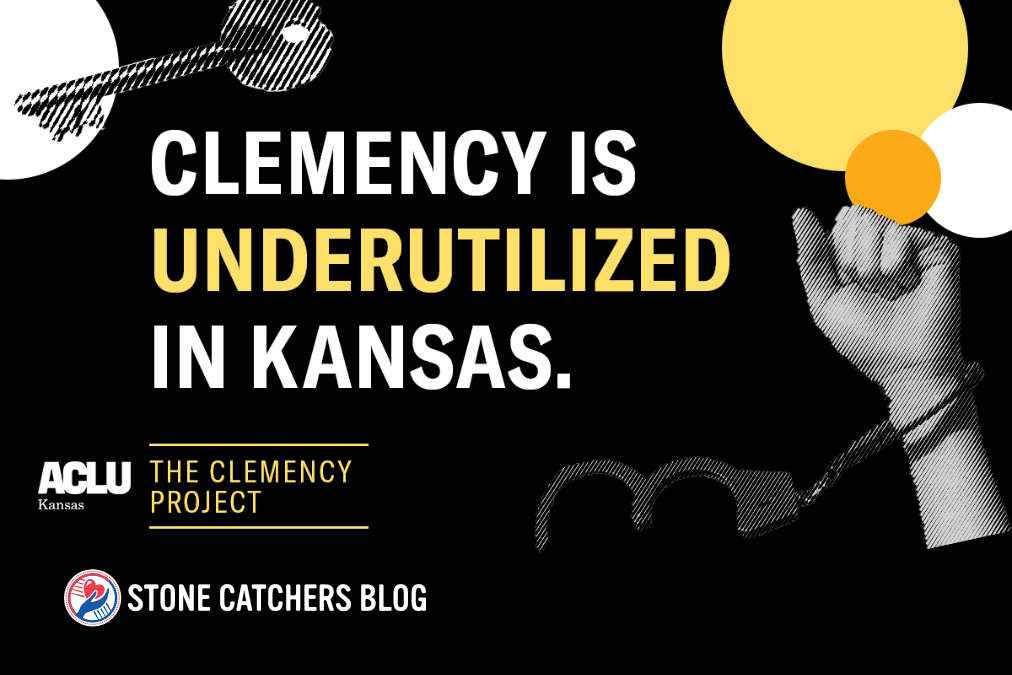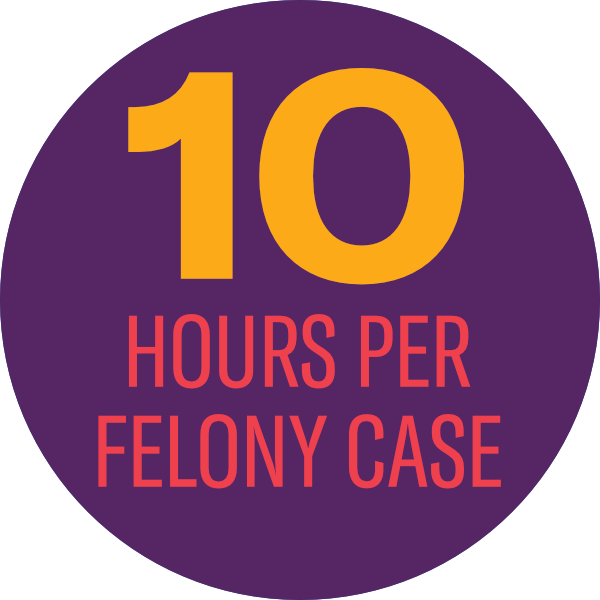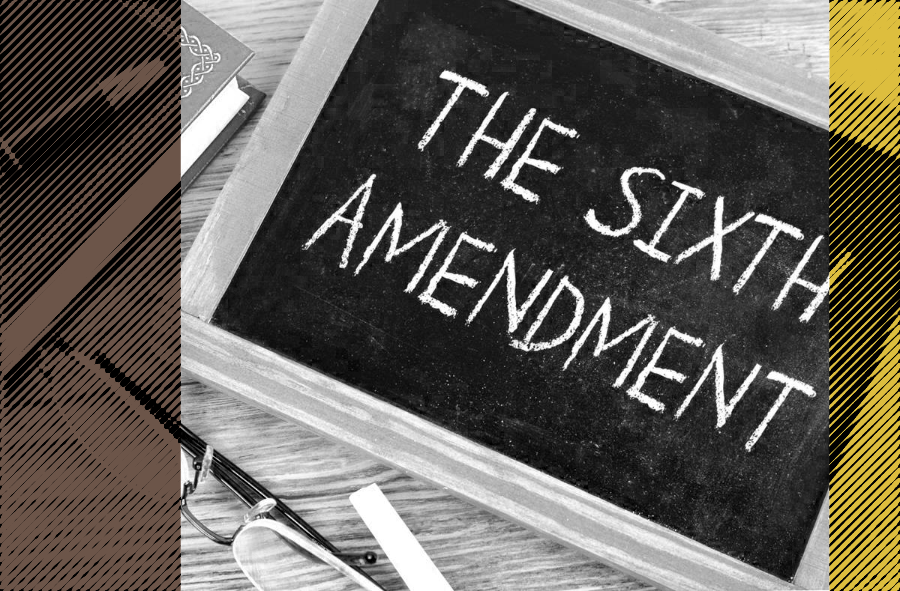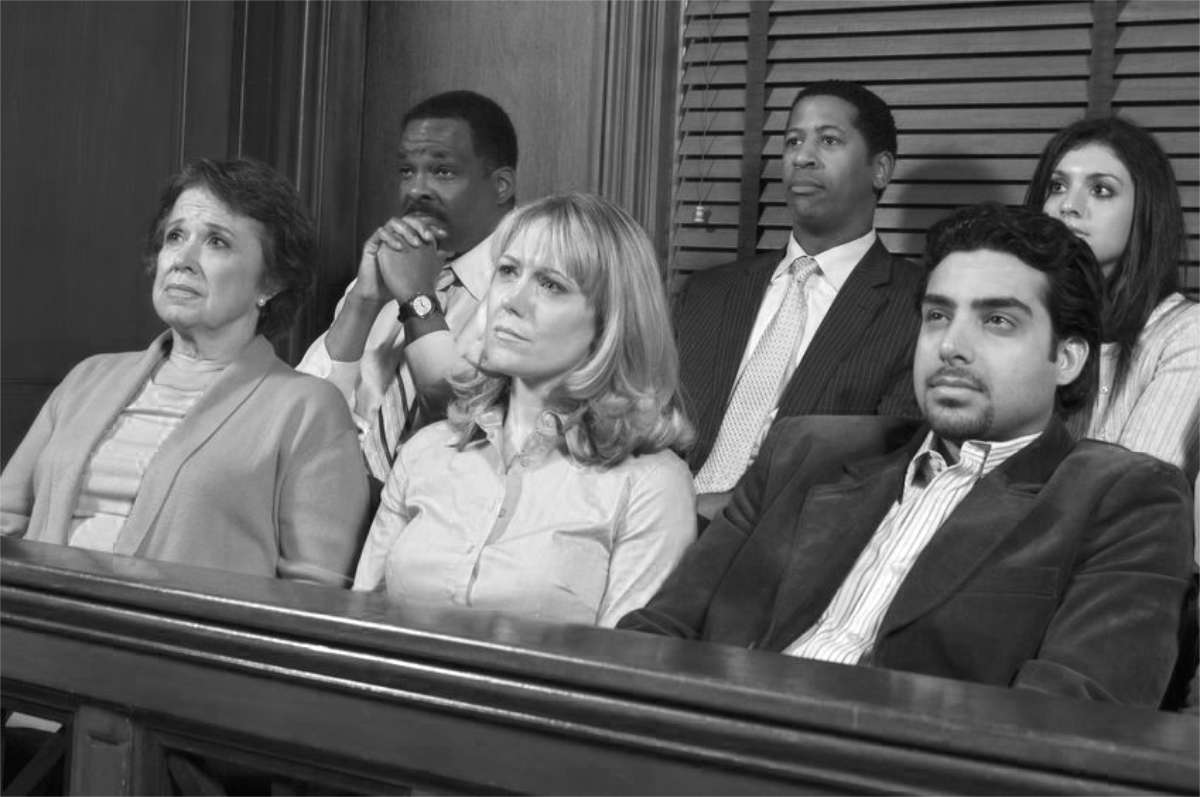BY STAN FINGER
The state of Kansas could find itself sued for violating the Sixth Amendment unless the current session of the legislature substantially beefs up inadequate funding for public defenders in the Sunflower State, officials say.
The stage agency Indigents’ Defense Services “is on the brink of collapse if the legislature doesn’t come through,” said Melody Brannon, federal public defender for the district of Kansas. “It hasn’t really been functioning constitutionally for a long time.”
Underfunded and Understaffed
Heather Cessna, executive director of Kansas State Board of Indigents’ Defense Services, is asking for an increase of more than $16 million to hire more attorneys and administrative staff, as well as raise salaries so they’re more competitive with the private sector and establish a training division within the public defender system. That would represent an increase of nearly 50 percent in the agency’s current budget.
The request is part of a plan developed by Cessna in the wake of a report to the Legislative Budget Committee on staffing and turnover issues at the agency. She was directed to create a plan “to solve those issues, rather than band aid them as has been done in the past,” she said.
The initial funding request would add 26 public defenders, 15 legal assistance positions, 25 investigators, 13 administrative assistants and six administrative support staff.
“This is based on our 2020 caseloads, which are a little bit lower than the normal year because of COVID,” Cessna said.
“This is based on our 2020 caseloads, which are a little bit lower than the normal year because of COVID,”
Even with the smaller caseload numbers, the public defender office in Topeka had to be closed to new cases for almost half of 2020 just to maintain the legally allowable caseloads for attorneys. Other offices had to be closed for extended periods as well.
When those offices are closed, cases must be appointed to outside counsel, which Cessna said is costlier than having agency attorneys handle the cases.
Governor Kelly acknowledges these needs within her proposed budget, which contains a $4.1 million increase for the agency to be used for attorneys and a new case management system. Although Cessna is grateful for the governor’s recommendation, she assesses the need as much greater, and says she still plans to press for a $16 million increase.
Stretched Too Thin
Beyond being unfeasible, this workload is also against regulations. The 1973 National Advisory Commission on Criminal Justice Standards and Goals for the Defense set case capacity for defense attorneys at no more than 150 felonies per year, no more than 400 misdemeanors per year, and no more than 25 appeals per year.
Yet in 2020, eight of the state’s 11 non-capital trial public defender offices substantially exceeded 150 felonies per attorney — even with a markedly reduced number of cases due to COVID.
“That is unacceptable under any measure of professional standards,” the report stated.
According to the report presented to the budget committee last September, trial attorneys had an average of 10 hours per felony case to spend defending a client in 2020. In Sedgwick County, where public defenders handled an average of 278 felonies, the amount of time spent on a client case was less than eight hours.
“That is unacceptable under any measure of professional standards,” the report stated.
An attorney will want to evaluate the legitimacy of the charge, the legality of how it was brought, any motions to suppress or litigate discovery and investigate the case independently before deciding what sort of outcome there should be, Brannon said.
“You’re going to do all of that in 10 hours?” Brannon asked. “It’s not possible.”
Your Rights Left Behind
The Sixth Amendment to the U.S. Constitution guarantees the rights of criminal defendants, among them the right to a public trial without necessary delay — commonly known as the right to “a speedy trial” — and the right to an attorney.
According to data presented to the Kansas Supreme Court’s Pretrial Justice Task Force in November, there are 377 prosecutors in the state, compared to 95 full-time public defenders.
“We can’t compete with the resources the state has” to prepare for trials, Cessna said.
Most people charged with felonies cannot afford to hire their own attorney, Cessna said. Research showed that 85 percent of adults charged with a felony require appointed counsel, whether it is a public defender or an outside attorney appointed to handle the case.
“We’re trying to do a better job than probably our agency has done in the past, of helping to articulate for the legislature what the on-the-ground consequences are when we don’t have the resources that we need to be able to do the job that we need to do,” Cessna said.
The funding request comes at a challenging time, Cessna acknowledges. Given the impact of the COVID-19 pandemic on the economy, the Kansas Legislature faces numerous difficult budget decisions.
“It’s already hard when you're asking for additional money for public defense, because a lot of people don't understand the need to invest in any way because it feels like you’re giving money to people who are charged with crimes,” she said. “So, it’s not a highly popular issue.”
Pressuring the Legislature
But her proposal has support from high-ranking officials. Among them is Marc Bennett, the Sedgwick County District Attorney and chairman of the Kansas Criminal Justice Reform Commission.
“The Supreme Court requires that we have a public defense system,” Bennett said. “You want, what, tax attorneys who take the case once a year, just to chip in? No. You want people who are professionals, who devote themselves to this, who know the rules and understand all the nuances and complexities.”
“The Supreme Court requires that we have a public defense system,”
For Indigents’ Defense Services to get the full amount requested this year is “a tall order, no matter what the ask is,” Bennett said. “But if you don't ask, you don’t get it. And if you lay it out and say ‘This is what’s needed’ and they say, ‘Well, this is what we can do” … that’s how it works.”
Judge Glenn Braun, who is on the bench of the 23rd Judicial District in Hays, said the pandemic shouldn’t be used as an excuse to deny needed funding for the public defender system.
“Whether we’re in good times or bad, it's always the same thing,” Braun said. “Go to the legislature and spend any time there. What do they tell you? ‘We don't have any money.’ It doesn't matter if we have a pandemic, it doesn’t matter if the economy’s booming. It’s always the same answer.”
The bottom line, Braun said, is “if we don't have a strong prosecution and a strong defense, the criminal justice system breaks down and the public loses confidence that you receive a fair hearing.”
Unsustainable and Unconstitutional
The $16 million sounds like a lot, Brannon said, but it’s a reflection of how underfunded the agency has been for many years.
“What she’s asking for is really the bare minimum to say that this is a public defender system,” Brannon said. “It's not even close to what it needs to be a vibrant and robust and effective system. Unfortunately, Kansas was like too many other states and [its public defense system] is teetering on the brink of complete collapse if the legislature doesn't come through.
“It’ll take several years to turn around and only if the legislature backs up what she’s asking for. She’s not being greedy by any stretch. You know, this is salvageable. But right now, it is not sustainable. And it is not constitutional.”
“You don’t even do the bare minimum for a case because you’ve got so many people pulling on you,”
If the legislature rejects the request or approves only a small portion of it, Brannon said, she would not be surprised if the state is taken to court in much the same way it has been sued for not adequately funding schools.
Adding more attorneys is only one part of the equation, Cessna and others say. Investigators and other support staff are just as important.
For a long time, Brannon said, Sedgwick County — which has the largest public defender office in the state — had just one investigator working cases for the more than 20 attorneys in the office. As of now, Cessna said, they have two investigators.
“You don’t even do the bare minimum for a case because you’ve got so many people pulling on you,” Brannon said.
By comparison, she said, her office has one investigator for every two or three attorneys.
Increasing salaries and creating a training division are vital to reduce turnover in the public defender’s office, Cessna said. Annual turnover had reached 25 percent before she was hired in 2019. Her plan also includes eventually transitioning to a more holistic approach to providing defense services.
A Holistic Approach
A 10-year study by the Rand Corporation found that the Bronx Defender and Legal Aid Society of New York’s holistic defense program prevented more than one million days of incarceration, reduced the likelihood of a prison sentence, lowered the length of prison sentences by nearly 25 percent and saved taxpayers $160 million in inmate housing costs alone.
Cessna wants to establish a similar model in Kansas. But her first priority, she said, is to add staff and increase compensation.
Wyandotte County, which has one of the highest felony caseloads in the state, doesn’t have a public defender’s office at all. Attorneys are appointed by judges to serve as counsel for defendants who can’t afford to hire their own lawyers.
“Our esteemed judges hold the massive responsibility of assuring justice is fairly and equitably executed,”
Having a public defender’s office “removes the appearance of impropriety from the attorney selection process,” said Wyandotte County District Attorney Mark Dupree, whose legal career includes time spent as a public defender and an attorney appointed to represent indigent defendants.
“Our esteemed judges hold the massive responsibility of assuring justice is fairly and equitably executed,” he said in an email response to questions. “However, when an elected judge appoints attorneys who have donated to their campaigns, to the community, there is an appearance of impropriety.”
Having a public defender’s office “removes the perverse incentive and focuses on pursuing justice,” he added. “When a private attorney is appointed to represent a client, they must wait until after a case is finished before they can receive payment. Although this may not be a subconscious motive for attorneys to plea cases and finish cases quickly, it has the potential for abuse. If a public defender’s office were put into place in Wyandotte County, attorneys hired would receive a steady paycheck and would not be lured into closing cases irresponsibly for payment needs.”
First Thing First
More public defenders’ offices are needed in Kansas, Cessna said, but her agency can’t consider expanding until the existing branches are better staffed and compensated. The agency doesn’t even have an employee explicitly dedicated to overseeing training.
“Most public defender systems have some sort of training division, because you’ve got a lot of people that need constant training… because criminal law is a very fluid and developing area at all times,” she said.
The scales of justice aren’t level if a public defender’s office is poorly staffed and financed, Brannon said.
“There has to be parity between the public defense system and the prosecution in terms of resources for investigation or for training, or for experts,” Brannon said. “And there’s not that same level of access for poor people who are charged with crimes. That in itself is a Sixth Amendment violation.”
Having a strong public defender’s office goes beyond lowering caseloads and reducing turnover, she said.
“One of the best checks on prosecutorial abuse and police misconduct is a good defense lawyer,” Brannon said. “You want to get the bang for your buck in checking prosecutorial abuse and police misconduct in a racial setting? Have a good public defender there to call it out.”
Date
Thursday, May 20, 2021 - 2:45pm
Featured image
Show featured image
Hide banner image
Override default banner image
Related issues
Criminal Legal Reform
Show related content
Tweet Text
[node:title]
Type
Menu parent dynamic listing
Show PDF in viewer on page
Style
Standard with sidebar
Show list numbers
Mark Dinkel still remembers the homicide trial in Riley County a few years ago that featured three African Americans in a jury pool of more than 50 people.
The prosecutor sought to excuse all three from consideration as potential jurors — and he was allowed to remove two of the three. In the end, Dinkel said, he felt fortunate to have one African American on that jury, because prosecutors routinely target minorities for exclusion from juries.
“It happens a lot everywhere. It happens a lot in Kansas.”
“It’s a huge issue,” said Elizabeth Cateforis, Clinical Professor of Law and supervising attorney for the Paul E. Wilson Project for Innocence and Post-Conviction Remedies at the University of Kansas. “It happens a lot everywhere. It happens a lot in Kansas.”
It continues to happen, attorneys say, despite a 1986 Supreme Court ruling that attorneys could not use a peremptory challenge — the dismissal of jurors without stating a valid cause for doing so — in a criminal case to automatically exclude potential members of the jury because of their race.
Justice Thurgood Marshall, in concurring with the 7-2 decision in the case Batson v Kentucky, asserted that the Court should eliminate the use of peremptory challenges in all criminal proceedings so they could not be used as a front for impermissible racial considerations. Under the current system, Marshall wrote, prosecutors are still free to discriminate so long as it is not blatant.
Eliminating the threat
That’s precisely what happens, Cateforis and other attorneys said.
“There’s literally video footage in which you can see prosecutors training other prosecutors on how to do that,” Wichita attorney Richard Ney said, referencing an August 2020 episode of John Oliver’s HBO series “This Week Tonight.”
The video from Philadelphia showed training being given after the Supreme Court’s ruling on Batson, not before.
“I tell my students, when we talk about Batson, ‘race neutral reason’ means as long as you don't say, ‘I’m striking this juror because they’re Black,’ it’s very neutral,” Cateforis said. “Even though that's the reason you're doing it. Because you can say ‘Oh, it's the neighborhood’ or ‘body language.’ That’s a classic. ‘They smiled at the defendant.’”
‘It’s not that we’re saying it’s because they’re Black, brown or broke, it’s because it is the strategy.’
There’s a simple reason why prosecutors aren’t eager to have minorities on the jury, Wyandotte County District Attorney Mark Dupree said. Studies have shown that many African Americans and other minorities have an inherent distrust in policing agencies due to the historical racism and discrimination rooted in the foundation of this country.
“Because we know these studies, both prosecutors and defense attorneys alike, it is in our minds during voir dire,” said Dupree, who is the only African American district attorney in Kansas.
“As a Prosecutor, we are trying to get a conviction. Therefore, you want to take away any type of threat to that conviction, right? This thought process hides the reality that it disproportionately removes black folks from the jury. And thus allows prosecutor to say, ‘It’s not that we’re saying it’s because they’re Black, brown or broke, it’s because it is the strategy.’ The fact is this type of strategy and thinking has kept Black, brown, and broke folks off of juries for decades, and until we deal with it, it will continue to do so.”
New laws may ‘change the landscape’
In an effort to reduce what defense attorneys view as thinly veiled efforts to remove minorities from jury pools, the California Legislature earlier this year passed a law stating that, unless the party exercising the peremptory challenge can show by clear and convincing evidence that an objectively reasonable person would view the rationale as unrelated to a prospective juror’s race, ethnicity, gender, gender identity, sexual orientation, national origin, or religious affiliation, or perceived membership in any of those groups, several reasons for exclusion would be considered invalid.
The diversity committee of the Kansas Bar Association is recommending that the 2021 session of the Kansas Legislature enact a similar law for the Sunflower State. Such a law “really puts teeth” into the Batson ruling, Ney said.
“This would change the landscape,” he said. “This truly would make Batson mean something.”
“I think it's a long overdue piece of legislation that needs to be considered”
The problem with the Batson decision is “it was one great case,” said Heather Cessna, Executive Director of the Kansas State Board of Indigents Defense Services in Topeka. “And it really just hasn't had teeth in it, to be able to enforce it appropriately since it came down. Certainly, my experience as an appellate attorney was that Batson issues were extremely difficult to prove at the district court level, even if it seems like there was some clear bias.”
The new California law and growing interest to introduce legislation in Kansas are attempts to address those shortcomings, Cessna said.
Any bill that is introduced is likely to face strong opposition, Rep. Gail Finney said, including from the Kansas County and District Attorneys Association. But that doesn’t faze her.
“I think it's a long overdue piece of legislation that needs to be considered,” Finney said. “Seeing different people go into court and rarely ever seeing any person of color in those jury pools. It’s just really disconcerting for me. How they expect to get a jury of peers and there’s not one person of color on there? And you wonder why we have a disproportionate amount of people of color incarcerated.”
Does California law go too far?
Sedgwick County District Attorney Marc Bennett said he believes the California law “goes too far” in limiting reasons why prospective jurors could be removed from a panel with peremptory strikes.
“This bill goes far beyond what Batson ever contemplated,” he said after reviewing the new California law. “I find a lot of this very problematic.”
Among the reasons for exclusion that would be considered invalid under the California law are:
- Expressing a distrust of or having a negative experience with law enforcement or the criminal legal system.
- Expressing a belief that law enforcement officers engage in racial profiling or that criminal laws have been enforced in a discriminatory manner.
- Having a close relationship with people who have been stopped, arrested, or convicted of a crime.
- A prospective juror’s neighborhood.
- Having a child outside of marriage.
- Receiving state benefits.
- Not being a native English speaker.
- The ability to speak another language.
- Dress, attire, or personal appearance.
The law goes into effect Jan. 1.
“Some of these are just total dog whistles,” Cateforis said of the examples of now invalid reasons for exclusion, since they most frequently involve minorities. “But some of them would have to make you ask further questions.”
Flowers vs. Mississippi
Ney pointed to a Mississippi case in which Curtis Flowers was tried six different times for the murder of four people in a furniture store. Over the course of three of those trials, the prosecution used peremptory strikes to excuse 31 of the 32 African Americans in the jury pools.
Flowers was convicted in each of the first two trials, but the convictions were thrown out by a higher court because of prosecutorial misconduct. The third conviction was overturned by the Mississippi Supreme Court because of Batson violations. The fourth and fifth trials ended in mistrials. The sixth trial, which included one African American juror, resulted in a conviction. But the U.S. Supreme Court overturned the conviction in 2019 because the prosecution again violated Batson during jury selection. Flowers will not be tried a seventh time, prosecutors announced in August.
In a recent felony case in Saline County featuring a Native American defendant, Dinkel said, the judge blocked the prosecutor’s attempts to remove multiple Native Americans and other minorities from the jury pool. In response, Dinkel said, the prosecutor offered a plea agreement, reducing the charge from a felony to a misdemeanor. The case never went to trial.
Impact of minorities on juries
Why would prosecutors not want minorities on juries? A study of felony trials in Florida between 2000 and 2010 provides a clue.
“The evidence regarding the impact of the jury pool on conviction rates is straightforward and striking: the presence of even one or two Blacks in the jury pool results in significantly higher conviction rates for white defendants and lower conviction rates for Black defendants,” the study “Jury Race and Criminal Trials” stated in the Quarterly Journal of Economics.
In cases with no African Americans in the jury pool, the study showed, Black defendants are convicted at an 81% rate, while white defendants were convicted at a 66% rate. When the jury pool included at least one Black potential juror, conviction rates are almost identical: 71% for Black defendants and 73% for white defendants.
Any bill addressing the limitations of Batson that blossoms in the Kansas Legislature will be closely watched, defense attorneys say.
“Being very pessimistic about Kansas, I can't believe that this would pass,” Cateforis said. “But if there’s ever any time in Kansas that something like this could at least get on the table and be discussed, now is the time, with criminal justice reform being on the table.”
The Kansas Criminal Justice Reform Commission was established by the legislature in 2019 and asked to review all aspects of the criminal justice system. But jury selection and how potential jurors are summoned were not among the issues explored by commission sub-committees.
Bennett, who chairs the reform commission, said the 2021 session of the legislature will likely be asked to extend the life of the commission another year or more.
“COVID made it difficult to get much accomplished in the last session and the members of the commission realize our work is not going to be accomplished in one year based on one report,” Bennett said. “We need at least one more year.
“If the Batson issue was not a priority for any of the sub-committees this session, it could very well be added to the discussion next year if we are given an extension.”
‘Nobody wants Batson issues’
One of his biggest issues with the new California law, Bennett said, is a provision stating that any denial of an objection to the use of a peremptory challenge on grounds listed would be subject to de novo review by an appellate court. A de novo review provides no deference to the trial judge, Bennett said.
“What that’s saying is ‘We don’t trust the trial courts to make the right decision,’” Bennett said.
There can be legitimate reasons to not want someone – of any race – on a jury if, for instance, they or someone they’re close to has had a bad experience with law enforcement, Bennett said.
“Nobody wants Batson issues, Nobody wants to have all white juries…”
“There are guys who show up and you can just tell they don’t want to be there,” he said. “The white guy with his pot leaf T-shirt on, who’s rolling his eyes at everything. You’re thinking, ‘I don’t need him on a jury, he’s just going to be difficult for everybody to deal with.’ No one’s asked me (about using a peremptory challenge to remove him from the jury pool) because he's white. Batson doesn’t apply. But, of course, I get rid of him because of this. Look at his T-shirt. Look at the way he carries himself. Look at the way he answers questions… ‘Yeah, my brother-in-law got screwed by the cops.’ You know, he’s gone. I’m not going to leave that guy on (a jury).”
But an African American man on the other side of the room “who essentially behaves in the same fashion?” Bennett asked. “I shouldn’t be able to strike him?
“Nobody wants Batson issues,” he said. “Nobody wants to have all white juries. Everybody wants to make sure that there’s a cross-section of the community” on a jury.
Cessna said she likes the language in the California law stipulating that the district court doesn’t have to find purposeful discrimination to sustain the objection.
“It allows for the possibility of the recognition that there is implicit bias, and that somebody may not be making a decision intentionally to try to remove somebody based on their race, but that the consequences of their decision still could be the basis of implicit bias or a racially impactful decision,” Cessna said.
Despite his objections to portions of the California law, Bennett said he’d be willing to be part of conversations “to see if we could come up with something that might accomplish the stated goal” of tightening exceptions by the case law subsequent to Batson.
“This is the kind of thing that is deserving of a conversation,” Bennett said.
Jury summons response rates
Yet even a Kansas law reducing unspoken targeting of minorities in jury pools doesn’t address the biggest reason juries all too often have no minority representation is that the response rate for jury duty among minorities is low, Bennett said. There’s a small pool of potential jurors to draw from, he said, because many minorities simply don’t show up. Defense attorneys concur.
“The reason we’re having low numbers of minority jurors in Wichita and Sedgwick County is because there’s no penalty”
“The reason we’re having low numbers of minority jurors in Wichita and Sedgwick County is because there’s no penalty — and everyone knows it — for not appearing for jury duty,” Ney said. “If you get a jury summons, and you don't show up, here’s what happens to you: Absolutely nothing. And that’s not true everywhere. But that’s true here.”
There are any number of reasons why the response rate is so low, Ney and others say. Like many states, Kansas uses voter registration records and driver’s licenses to create a pool of potential jurors to draw from. That leaves out those who no longer have a driver’s license or who aren’t registered to vote.
Dupree said statistics show that three demographic groups – what he likes to call “the three Bs: Black, brown and broke” – are disproportionately affected by how Kansas chooses prospective jurors.
“If a vast majority of them, disproportionately, have a bad driver's license or suspended driver's license or a felony on their record, and or don't trust the American system so they're not registering to vote, guess what? There is a lack of the three Bs in the jury pool.”
Minorities may have had to move because of unstable employment or housing situations, meaning the summons never reaches them, defense attorneys said. They may not have transportation to get to the courthouse for jury duty. They may also fear if they show up at the courthouse, they’ll end up behind bars.
“Is it the fear of getting picked up for unresolved matters or is it a general apathy born of longstanding dissatisfaction with anything representing ‘the system?’” Bennett asked. “Is it because African Americans are more likely to work at a job that is less forgiving regarding jury duty? You can’t be punished for serving on a jury, but not all jobs pay employees their normal wages while they are on jury duty. The $10 to $15 jurors get daily for service may be all you receive. I don’t think there is one reason.”
Jury duty could cost car or rent payment
When she lived in Texas more than 20 years ago, Finney said, she was paid $6 for the day she spent at the courthouse waiting to see if she would be called to be a juror. That essentially paid for her lunch that day, she said. Financial considerations are likely a major reason many minorities summoned for jury duty don’t go, she said.
“If you're in one of those jobs where you’re looking at your time schedule and just barely holding on to a job, you’re not going to take that chance,” Finney said. “And you know you’re not going to get reimbursed by your employer.”
It becomes particularly pressing if someone who isn’t likely to draw their regular pay while on jury duty is empaneled on a case that lasts multiple weeks, she said.
“You could lose your car payment or your house payment or your rent or something,” Finney said.
The fear of getting arrested for unresolved matters if you show up for jury duty is unfounded, Bennett said, because the court administrator who oversees the jury pool doesn’t have access to criminal databases.
“It’s not whether they would be arrested, it is whether they think they would,” Ney said. “If you had warrants, would you risk showing for jury duty?”
Cessna said she understands why people who might be wanted for one thing or another would be reluctant to show up for jury duty.
“If that was me, I would be afraid to show up for jury duty, for that reason,” she said.
“But in 10 years of practicing law as a defense attorney in an affluent, predominantly white neighboring county, only one case he tried had a minority on the jury.”
Courts around the country saw an increase in minorities in jury pools starting in 2008, Bennett said, because so many people registered to vote so they could vote for Barack Obama. Voter registration campaigns currently under way to increase the turnout for the 2020 election could have a similar effect, he said.
The issue isn’t just about defendants arguably getting fairer trials, Cateforis said. The Batson case doesn’t just protect defendants, it also protects prospective jurors. That’s why legislation addressing loopholes has value, she said.
“Juries tend to be become overwhelmingly white after the peremptory challenges,” she said. “We have jurors of color who are not able to be full citizens because they're getting struck from juries. And then for the defendant, obviously, not having a jury of her peers, in the way it’s contemplated. And then just the stereotypes that prosecutors and defense counsel have about jurors of color and their interaction and their likelihood to view evidence in a different light. So, to the extent that it both harms the prospective juror and the defendant, it is a big deal.”
Because Wyandotte County is one-third Caucasian, one-third Black and one-third Hispanic, Dupree said, the odds are good that juries will feature one or more minorities on them. But in 10 years of practicing law as a defense attorney in an affluent, predominantly white neighboring county, Dupree said, only one case he tried had a minority on the jury.
A piece of a bigger picture
Bennett said any legislation born of this effort has to be viewed as just one piece of a bigger picture.
“There’s other things we’re going to have to do, like addressing impediments to showing up – day care, transportation, loss of wages,” Bennett said. “That’s also got to be part of this equation. Otherwise, it’s going to be a largely symbolic and largely ineffective change.”
Dupree concurs with Bennett’s call for broader change. That should include more minority attorneys and even judges, he said. Despite being the most ethnically diverse county in the state – and one of only three in the entire country with Blacks, Hispanics and Caucasians roughly equivalent in population – 14 of the 16 court judges in Wyandotte County are white.
“So if a Batson challenge comes up in any of those courtrooms, there's a likelihood that…out of the most diverse county in the state, a white man is going to make a decision,” Dupree said. “They say that it's not racist.”
“There is systematic biases and racism throughout all of our criminal justice system…”
While it may not be explicit, he said, it’s still a problem.
“There is systematic biases and racism throughout all of our criminal justice system, and quite frankly, throughout many systems in this country, because of the history of this country,” Dupree said. “So, no, it's not going to be resolved by simply throwing more black and brown people at it.”
But the Kansas Bar Association is taking a significant stance, Dupree said, by saying, “How do we take a hard look at this, and making sure that the ground is equitable, that it is fair across the board?”
Cessna endorses a holistic approach to addressing why the jury summons response rate among minorities is so low.
“Looking at some of those more systematic issues is certainly helpful,” she said. “And to the extent that we can address some of those issues, I think that we've got jury pools that are more representative of the communities than they currently are. That would be very helpful.”
Despite the opposition it will likely face, Finney said, legislation addressing jury selection can serve as an important first step.
“Sometimes, you have to continue introducing legislation to educate the public about it to get more acceptance for it,” she said. “And once it gets more acceptance, it seems like it gets more traction. I think it will be difficult, but I think it will be worth trying.”
BY Stan Finger
Date
Monday, May 10, 2021 - 6:00pm
Featured image
Show featured image
Hide banner image
Override default banner image
Related issues
Criminal Legal Reform
Show related content
Tweet Text
[node:title]
Type
Menu parent dynamic listing
Show PDF in viewer on page
Style
Standard with sidebar
Show list numbers

























